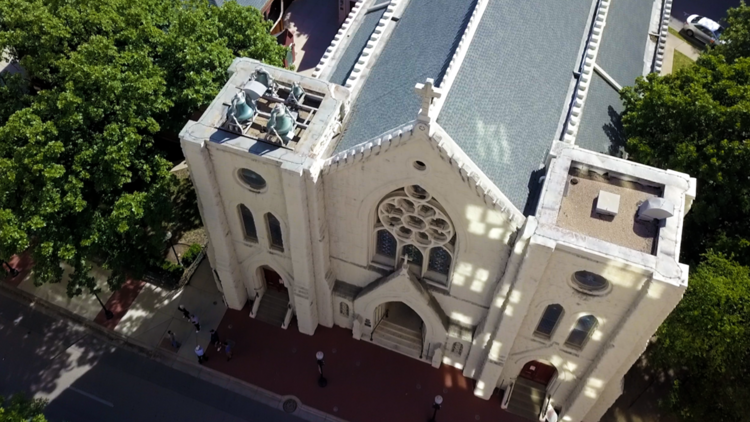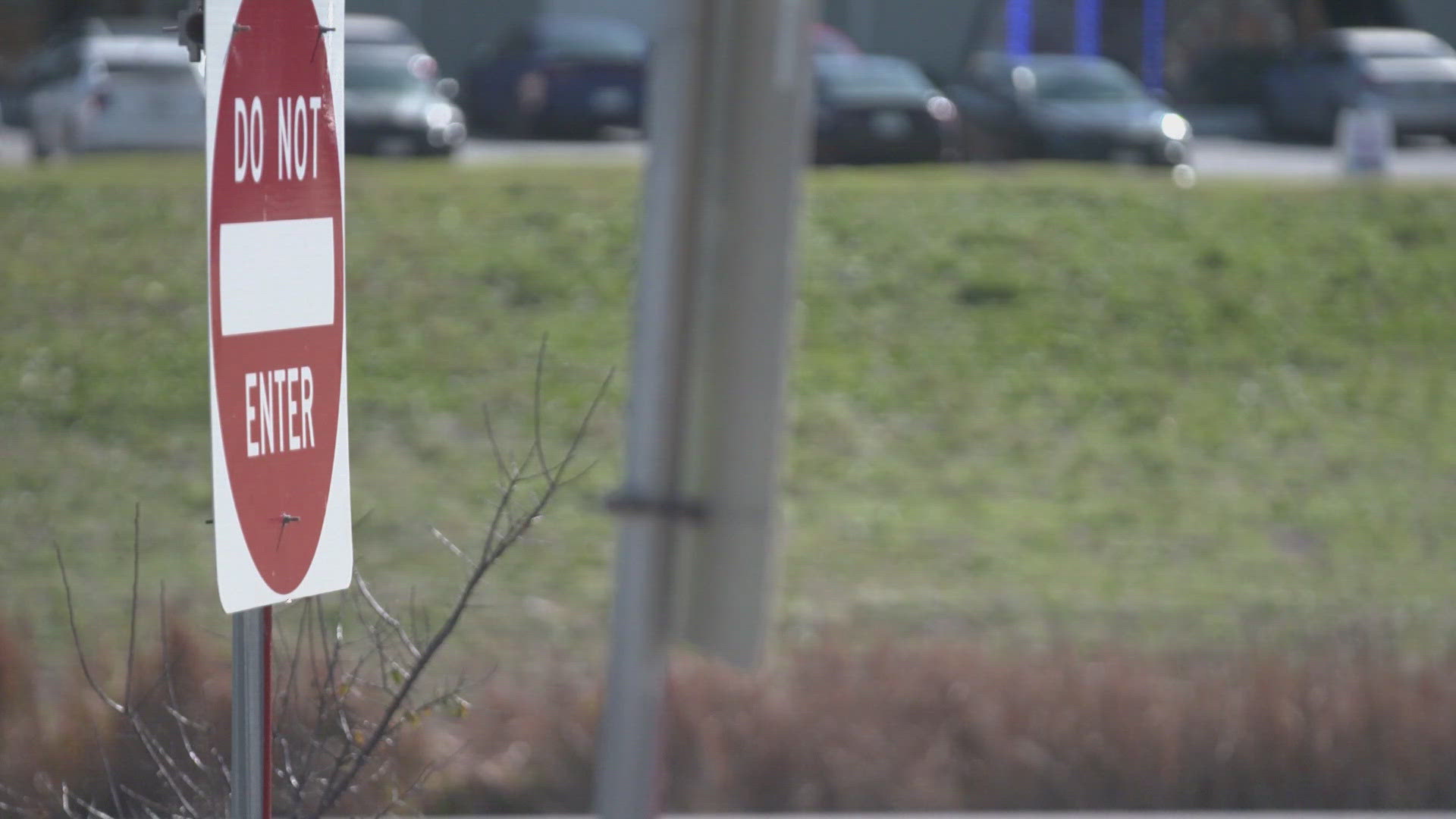FORT WORTH, Texas — A group of nuns has filed a lawsuit against a bishop and the Catholic Diocese of Fort Worth seeking injunctive relief issued against a canonical sexual misconduct investigation initiated by the bishop.
The suit, filed by the Discalced Carmelite Nuns against Bishop Michael Olson and the Catholic Diocese of Fort Worth, was filed after Olson initiated the ecclesiastical investigation into Reverend Mother Teresa Agnes, claiming she committed sins against the Sixth Commandment and violated her vow of chastity with a priest from outside Fort Worth's diocese.
In the Catholic Ten Commandments, the Sixth Commandment is "thou shalt not commit adultery."
A statement from the Catholic Diocese of Fort Worth regarding the monastery states that an investigation into the report of the misconduct was initiated on April 24.
"The Reverend Mother Teresa Agnes has responded by initiating civil litigation against Bishop Olson and the Diocese of Fort Worth," the statement read. "Please pray for the sisters at the Monastery."
In the suit, the Discalced Carmelite Nuns, also called the Monastery of the Most Holy Trinity, challenge Olson's authority to conduct the investigation. The initial petition is an application by the nuns for a temporary restraining order, a request for an injunction to restrain Olson from his investigation into the monastery, and a declaratory judgment defining the legal relationship between the two parties.
The suit also states the monastery is seeking at least $1 million in monetary relief, including damages, penalties, costs, expenses and attorney's fees.
"Defendant Michael Olson is the Bishop of the Catholic Diocese of Fort Worth and he and his agents are abusing their power, inflicting moral violence and psychological distress on the Plaintiff’s and the Sisters by undertaking an illegal, unholy, unwarranted, explicit, and systematic assault upon the sanctity and autonomy of the Plaintiff’s and the Sisters," the suit reads.
The suit argues that the monastery is its own autonomous religious institution and not under the control of Olson and the Diocese of Fort Worth.
"The Monastery belongs to the Order of the Most Blessed Virgin Mary of Mount Carmel, a contemplative order of pontifical right established in the late 16th Century," the suit details.
Pontifical right, the suit continues, is a term given to religious institutions created or approved by The Pope. These institutions depend exclusively on the Pope in matters of discipline and internal governance.
"This is critically important because the Monastery and the Plaintiffs are not under the control of Defendants and instead any internal governance must be reserved exclusively to the Pope," the suit argues.
There are only certain cases in which diocesan bishops may exercise pastoral care, and the suit argues that none of these cases exist in the present matter.
"Defendants can show no authority to prove they meet any of these criteria. Thus, all of their actions discussed in detail below are a violation of not only basic Texas law but Canon law as well," the suit reads.
Olson, the suit reads, informed the monastery he would be coming to visit on April 24 with just 30 minutes notice. Later, the suit states, an unnamed forensic technology person was allowed into the monastery, and Olson and others then demanded to see Agnes and Sister Francis Therese, her primary caregiver.
"Stunningly, Bishop Olson demanded that Sandra and the unnamed forensic technology male be given entry into the Papal Enclosure of the Monastery reserved only to the female members of the Discalced Carmelite Order, summarily demanding that the Reverend Mother turn over her computer, iPad, and cellular phone, to him personally," the suit reads.
Olson further prevented Agnes and Therese from taking administrative action on behalf of the Monastery, the suit states.
"Nothing under Texas law gives the Bishop authority to replace the corporate directors and officers of a Texas non-profit corporation which he has attempted to do," the suit argues.
The suit further claims Olson tried to impose on Agnes where she can eat and sit, whom she can talk to, whether she can use technology and whether she can leave the monastery.
"These restrictions are obscene and have no basis in Texas law to impose such restrictions on an individual," the suit states. "They are in flagrant violation of the Reverend Mother’s status both in Texas law and Canon law as the Major Superior of the Monastery, above whom there is no authority but the Pope himself."
The suit goes onto to claim many other examples of abuse, including telling Agnes' primary caregiver that she was prevented from speaking to her, either directly or through an intermediary, despite Agnes' health needs. Agnes reportedly lives with a PICC line and feeding tube 24 hours a day and is hooked to an IV drip 10 hours a day.
Due to taking Agnes' technology, the suit states, the monastery can no longer pay its bills or operate financially because all of the information was located on her technology.
"This insane amount of abuse has created tremendous emotional trauma and psychological distress on the Plaintiffs and the Sisters and is directly affecting the Reverend Mother’s physical health," the suit states. "These actions are beyond the pale of decency, have no basis in law, are unconscionable and unheard actions for a Bishop."
Olson and the diocese responded to the suit with a plea stating that ecclesiastical disputes like this have no place in civil courts, and that civil courts have no jurisdiction over them.
"To that end, the First Amendment's Establishment Clause and the ecclesiastical abstention doctrine preclude courts from deciding matters relating to church governance, church discipline and theological controversy," the defendants argue in the plea.
In determining the merit of the monastery's claims, the plea argues the Court would have to entangle itself with the issues of church governance and canon law, which they argue is impermissible.
The defendants also state there is an ongoing canonical proceeding raising the exact same issues the monastery has raised in the suit, which they argue highlights the fact these claims shouldn't be adjudicated in a civil court.
"If there is a forum that should consider Plaintiff's complaints about Bishop Olson's investigation, it is the Roman Catholic Church," the defendants argue. "It is, respectfully, not a civil court in Tarrant County, Texas."



